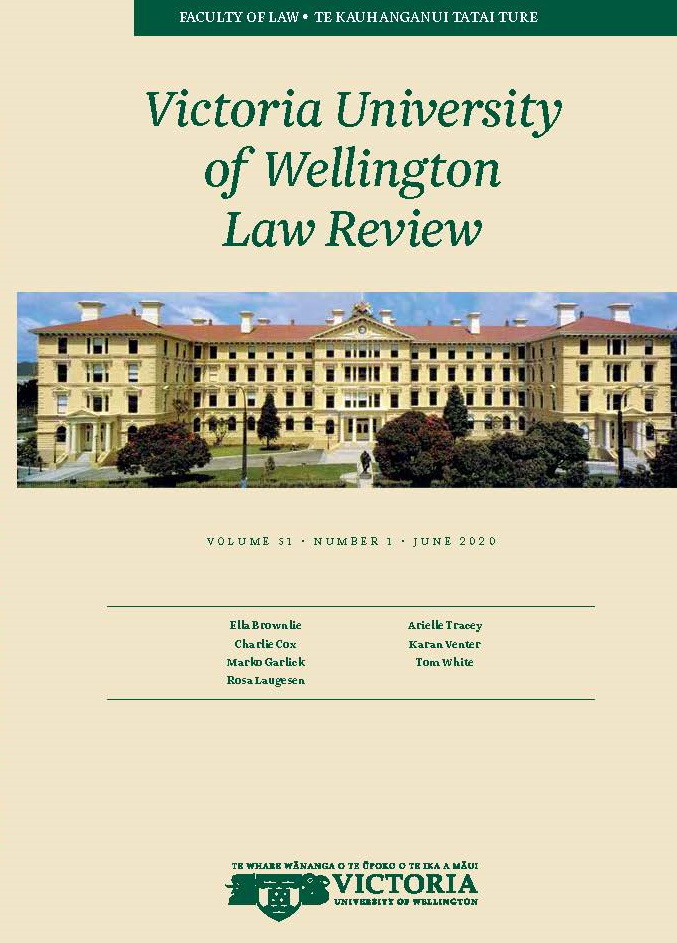The Majestic Equality of Disenfranchisement: Assessing the Right to Freedom from Discrimination in Light of the Ngaranoa Litigation
DOI:
https://doi.org/10.26686/vuwlr.v51i1.6517Abstract
The right to freedom from discrimination in New Zealand is underpinned by equality, one of the most influential, yet amorphous principles in political theory. This article argues that the failure of New Zealand courts to articulate the norms behind the anti-discrimination guarantee enables arbitrary and inconsistent reasoning. The decisions of the High Court in Taylor v Attorney-General and the Court of Appeal in Ngaronoa v Attorney-General thus reflect a wrong turn in New Zealand discrimination law, taken in the case of Ministry of Health v Atkinson. Because discrimination law necessitates moral judgment, this article argues that the courts have been wrong to treat discrimination law as a largely amoral enterprise. Seen in this context, it should be unsurprising that the decisions of Taylor v Attorney-General and Ngaronoa v Attorney-General appear to mask moral judgments behind a façade of empiricism and common sense, and reveal different conceptions of equality.
Downloads
Downloads
Published
How to Cite
Issue
Section
License
Authors retain copyright in their work published in the Victoria University of Wellington Law Review.


